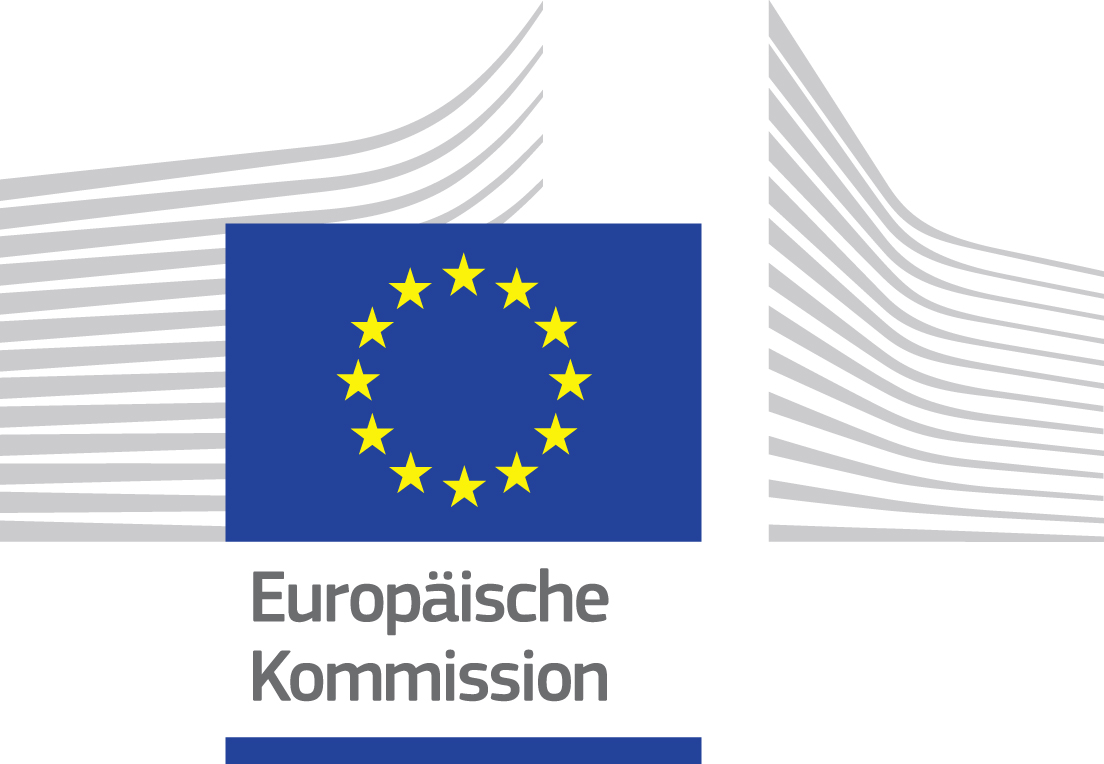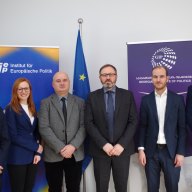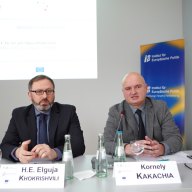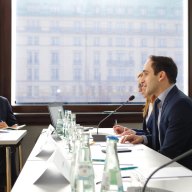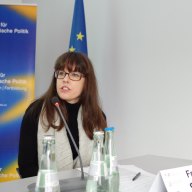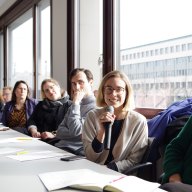“Germany’s Role in Georgia’s European Future: How to align expectations?”
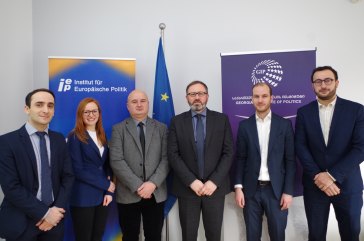
On 8 February 2019, the Institut für Europäische Politik in cooperation with the Georgian Institute of Politics (GIP) organized a public event in the framework of the Berlin Policy Hub to discuss Germany’s role in Georgia’s European future and possible ways to align mutual expectations in their bilateral relations. Around 30 guests participated in the round-table discussion hosted by the European Commission Representation in Berlin.
The participants were welcomed by Patrick Lobis, Head of the Political Team of the European Commission’s Representation in Germany, who gave an overview of the current state of EU-Georgia relations and referred to the findings of the recently issued Association Implementation Report on Georgia. H.E. Elguja Khokrishvili, Georgian Ambassador to Germany, stressed in his introductory remarks that Europe was part of Georgia’s identity and that Germany played a decisive role for Georgia within the European Union and the Eastern Partnership. He furthermore underlined that a new European “Ostpolitik”, as advocated by German Foreign Minister Heiko Mass, should be based on close cooperation between the partners.
Following the introductory remarks, Dr. Bidzina Lebanidze, researcher at GIP, and Viktoria Palm, research associate at IEP, presented the main findings and conclusions of a joint draft paper on perceptions and misperceptions in Georgian-German relations: While Germany perceives Georgia as a very – at times overly – ambitious, but strategically important partner due to its unyielding pro-European orientation and reform efforts, the Georgian side perceives Germany as an unreliable partner who hampers Georgia’s Euro-Atlantic aspirations from a position that is overly considerate of Russian interests.
The following panel discussion, featuring Dr. Kornely Kakachia, director of GIP and co-author of the draft paper, Liana Fix, Körber Stiftung, as well as Dr. Franziska Smolnik, Stiftung Wissenschaft und Politik (SWP), critically assessed Germany’ role for Georgia’s European aspirations, the identified misunderstandings in bilateral relations and possible ways to overcome them. Liana Fix described an ongoing paradigm shift in Germany’s “Ostpolitik” mirrored for instance in an increasingly critical discussion on the Nord Stream II project. She furthermore pointed out that the possible/eventual “carrot” of membership for the Eastern neighbours is currently weakened due to the EU’s internal problems. Franziska Smolnik raised the point that to overcome misunderstandings, it was important for Georgians to understand how German foreign policy is formulated and which role domestic politics play. Germany, on the other hand, should acknowledge that symbolic gestures matter to the Georgian public and its politicians and should act accordingly. Kornely Kakachia stated that Germany at times seems to underestimate its persuasive power within the European Union and the crucial role it plays for the Eastern neighbours. He also formulated the wish from the Georgian side to politically escape the Southern Caucasus region, and rather be perceived as belonging to a group with Ukraine and Moldova.
The panel concluded that it was important to foster the mutual understanding in bilateral relations to prevent Georgian hopes from being dashed, which in turn bears the risk of jeopardizing Georgia’s pro-European path. After the panel discussion the audience had the chance to comment and ask questions to the panelists. The issues addressed were the next steps in the implementation of the Association Agreement, the probability of Georgia being politically considered detached from the South Caucasus as well as the need to also accept uncomfortable truths.
The Berlin Policy Hub is part of the “Europeanization beyond process” initiative funded by the Open Society Foundations. It aims at connecting Eastern European Think Tanks with their German counterparts in order to enhance the exchange of knowledge and ideas and encourage new ways of cooperation. Researchers from Georgia, Moldova and Ukraine are given the opportunity to present their research to German experts and decision-makers and to promote a better understanding of topics of relevance for their home countries.

